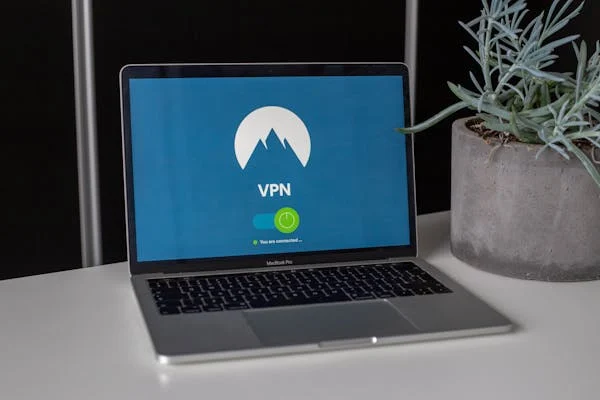Is It Safe to Use PayPal? Complete Guide with Tips

Find out about the privacy policies offered by PayPal for buyers and sellers. Also, know how to request a refund and avoid falling for PayPal scams. Read our guide to learn everything about encrypting your classified data using ExtremeVPN.
People widely use PayPal to make online payments and purchases nationally and internationally. Despite this, many users doubt its online security, although the system provides various payment protection, encryption features, etc.
However, do these features come with such security mechanisms that it will only be possible for people or something to access your data? Otherwise, what will you do to protect yourself from fraud? Don’t worry. In this case, we shall learn about PayPal’s security and how to keep safe while on the internet by taking cautionary steps and using a good VPN like ExtremeVPN.
The Safe Use of PayPal
PayPal secures the transactions between buyers and sellers, keeping them encrypted. However, it is secure only after you visit and conduct the transaction on the authentic PayPal website.
Paypal’s Security Features
People prefer PayPal because it has stronger encryption and security than other online payment choices. They employ top-notch protocols such as SSL, end-to-end, and 128-bit data encryption. Below are the vital security features of PayPal:
- Data Encryption: It also has SSL and 128-bit encryption to ensure data security and payments for the users.
- Browser Integrity Checks: Before it allows you to access your account, it checks whether it meets its high-security standards.
- Security Key: It also offers two-factor authentication, whereby your smartphone receives a verification code from the platform each time you log in.
- Fraud Monitoring: It automatically sends a PayPal alert whenever someone uses your account for fraudulent purposes or transactions.
- Dispute Resolution: It has an agreement option that assists consumers in deciding payment-related disputes with their suppliers.
- Purchase Protection: The online payment platform also offers purchase protection for quality purchases. It addresses issues about delivery and non-delivery costs and deals with cases of damaged items.
- Seller Protection: Unlike competitors, however, PayPal provides fantastic seller coverage. By doing this, they are not easy to chargebacks or any claims of fraud from the customers. But it is based on facts.
Note: A public WiFi network provider may observe your browsing activities using your PayPal account. Therefore, it is advisable to use a top-notch VPN like ExtremeVPN before making any payments on PayPal. It further enhances security and encrypts your data so no one can see what you are doing.
For Sellers
As a seller or a business using the PayPal platform for online transactions, you should be aware of the kind of security you will get in case of an occurrence. Below are the privacy protection features that PayPal provides to sellers:
- Its outstanding seller’s protection program helps business people and sellers not lose due to scams, phony claims, and chargebacks.
- PayPal ensures a 24-hour check-and-balance and alerts for any unnatural behavior, helping to avoid losses due to non-existent transactions on the seller’s part.
- Making a transaction is easy since you only need a username and a password. There is no need for card numbers or bank accounts.
- PayPal will always be available to help dealers who suspect fraudulent action.
- On PayPal, sellers can actively dispute buyers’ fraudulent claims, and the platform will retain payment until the issue.
For Buyers
- PayPal provides sellers with security features and extends similar protections and additional provisions to buyers.
- Ensure secure transactions with end-to-end encryption on the platform, but avoid direct payments through PayPal and maintain a strong internet connection.
- Buyers, like sellers, have assurances such as dispute resolution, 24/7 fraud monitoring, and fraud prevention.
- PayPal’s Purchase Protection aids buyers in avoiding online scams, offering a refund for changed or damaged orders within the first six months. Opening a dispute directly on the platform is sufficient.
Types of PayPal Transactions
Most people utilize PayPal for two transaction categories: one involving goods & services and the other related to friends & family.
Friends and Family Transactions
Payments for Friends and Family through PayPal consist of transactions between someone close to you or known to you. They contain remittances, payments for dinners, paying back friends who borrowed their money, transferring money abroad to relatives, etc.
PayPal does not charge any fee if you make a transaction using friends & family. If you use your bank, PayPal Cash Plus or Balance, and PayPal Cash. However, there is a small transaction fee for debit, credit, and other friend and family payments.
Goods and Services Transactions
A buyer uses this transaction to purchase a good or pay for services from a seller. This process also benefits the buyer, as PayPal helps them. The seller does not make a fee transaction on the buyer side. The seller makes it every time.
In this case, PayPal would charge the transaction fee from the seller and ask that you use the transaction methods as “friends & family” because no cost is involved but don’t forget that PayPal does not include purchase protection. It is also an ideal way of being kept away.
Can PayPal be Linked to a Bank Account or Credit Card?
Most people link their bank accounts/debit cards to PayPal, but there are better ideas than this, as it puts off potential customers. It is advisable to add PayPal credit cards or PayPal to purchases on the Internet.
Take, for example, when you notice some irregular transactions on your bank account linked to PayPal. After seeing the documentation, Paypal only takes 180 days to refund you for all eligible transactions.
However, they offer extra security that deters transactions from unfamiliar sources. You will have an extra layer of protection by using credit with PayPal to purchase items.
If your credit card has zero liability protection, you’re only responsible for a $50 payment under US federal law if lost, stolen, or used without authorization. Making online payments through PayPal consolidates confidential information in one place, eliminating the need to update multiple accounts if you lose your card or change your bank account number.
Will I Get My Money Back If I Get Scammed Through PayPal?
The online payment service returns cash only if the product is damaged or has yet to be delivered. PayPal can also tell you whether you are entitled to a refund if you report this issue within 6 months.
However, there are several ways in which sellers can refund your money. It could be like providing you with defective goods corresponding to the order’s description or asking you to deliver them to an address carrying costly fees. In fact, in this situation, PayPal will hardly manage to obtain a refund since sellers’ tricks are difficult to bypass.
Additionally, PayPal does not offer purchase protection or a money-back guarantee when using the Friends and Family payment method.
Significant Risks of Using PayPal
PayPal’s robust security features attract users for online transactions, given its payment and data protection policy for over 320 million users.
Despite its popularity, the platform has become a prime target for fraudsters due to the involvement of financial information, leading to scams like fake emails, identity theft, and phishing.
Using PayPal email fraud, scammers have duped over 42 million people, resulting in losses exceeding $52 billion. Fraudulent emails often contain fake PayPal sites, attempting to extract access codes, passwords, and personal information.
Caution users not to respond to these emails; they might request cash or disclose PayPal account details after clicking convincing links.
PayPal Email Scams
The scammers use psychological techniques by writing emails that require immediate action and asking you to click on a non-existent PayPal site. Below are the most popular PayPal email scams:
- Watch out for fake PayPal support messages threatening account suspension; scammers may trick you into clicking a link and revealing your password.
- Be cautious about scammers pretending to pay via email for items you’re selling; confirm payments through your PayPal account, as tracking numbers are not provided via email.
- Beware of scammers sending emails about the overpayment, instructing you to send the balance with the purchased item; be careful, as they aim to acquire both without payment.
Below are other common scams:
- Beware of fake PayPal emails using stress-inducing tactics for non-existent transactions. Scammers may lead recipients to click phishing links to cancel a purported payment.
- Be cautious of charity scams posing as a social security program and requesting PayPal donations by preying on empathy to contribute funds.
- Exercise caution when buyers request shipping to an alternate address, possibly indicating shipping fraud, as they may inform PayPal of an incorrect delivery address to avoid payment.
- Watch out for fake refund emails from fictitious PayPal accounts instructing payment via a link by entering account information.
- Be vigilant against fraudsters sending fake invoices via email for unordered services or products.
- Beware of canceled invoice emails from scammers with false transaction reversal claims, providing deceptive support links and incorrect contact numbers.
How to Identify a PayPal Scam
You must distinguish a phishing attack from other scams, as they have been common for a long time and can deprive you of your money. However, even strong security measures cannot prevent scammers from scamming you.
Below are some vital tips to help you identify PayPal scams:
- General Greetings: PayPal always says ‘Hello, Your Name,’ not “Dear User.”
- Grammatical Mistakes: Most scams often have grammatical errors in their emails. PayPal’s emails have zero grammatical mistakes whatsoever.
- Sense of Urgency: The emails contain messages that make you afraid and hurry to take urgent action.
- Purpose of Email: Apart from emails for promotions, receipts, and payment notifications, PayPal sends no emails. The company informs you about everything on the official site.
- Email Address: Emails from official sources, like paypal@mail.paypal.com, are used to send such statements and notifications. For receipts, it uses service@paypal.com.
- Domain Name: Verify the domain name before you enter any personal information in case you unknowingly click on a phishing website link. PayPal is a domain name with two versions: PayPal.com and PayPal.me.
- Unknown Attachments: When opening emails from unknown sources, take care! It is where one will find links to phishing sites.
Can One Report a PayPal Scam?
Yes, you can submit a PayPal scam. PayPal users must acknowledge and report scams once they find suspicious activities on their accounts. Here’s how you can write a PayPal scam:
- Check your PayPal account: If you fall victim to an email scam, ensure you haven’t clicked any links in the email. Instead, open your PayPal account to check its status and verify any concerns through the Message Center.
- Report a problem: Therefore scams can be reported to the PayPal Resolution Center by their customers. Besides, if you don’t know how to write such a suspicious email to the Resolution Center, just forward it to spam@uce.gov and spoof@paypal.com.
- Change Your Password: If you discover that scammers have won, don’t worry. To change your password, try to settle down and log into your PayPal account via its main page. Make a strong password, or try ExtremeVPN’s free password generator.
Keeping Yourself Safe in PayPal
Follow these tips to stay safe on PayPal:
- Public WiFi: These networks are unsuitable for websites like PayPal, as ISPs can track your online activity and steal your account. When accessing public WiFi, one must use high-end VPN services like ExtremeVPN. It will provide users with VPNs that will encrypt their online activity and make it impossible for anyone to know what is happening.
- Use Antivirus: You can also use Antivirus software to ensure that your device and PayPal, among other personal information, is not compromised.
- Account Check: Ensure you regularly check your PayPal account for any payments and transactions you have received.
- Strong Passwords: Use strong passwords with at least eight characters, one capital, one small letter, one number, a unique symbol, and so forth. Avoid passwords like country names, dates of birth, and current year.
- Use Credit Cards: Credit cards will be an additional layer of protection. Moreover, credit card companies will even refund your money if you do not get it from PayPal for unauthorized transactions.
- Two-Factor Authorization: 2FA takes longer but secures your PayPal account. With this method, you will receive a one-time password every time you input the password while logging in.
- Email Check: Do not open emails about your PayPal account from addresses other than paypal@mail.paypal.com and service@paypal.com.
- Use a VPN: Use a good VPN such as ExtremeVPN to encrypt your online activity, and you can pay via PayPal without fear of cyberattackers. It has strong military-grade data encryption, keeping your information protected.
- Update Software: Regularly checking for updates is crucial, as each update introduces more sophisticated security measures.
PayPal with ExtremeVPN – Why You Should Use It
ExtremeVPN is an advanced VPN service that protects data from prying eyes. Your online activities are private and secure, regardless of where you are. Below are the important features that show why you should use PayPal with ExtremeVPN:
- Data Encryption: ExtremeVPN offers 256-AES military-grade data protection. Currently, it is the most popular method in the world for encoding information against the attack of third parties. Its encryption means no one can monitor your online activities, not your ISP.
- Split Tunneling: ExtremeVPN allows you to route traffic selectively. It also enables you to route certain data through an encrypted tunnel while maintaining unrestricted access and security for PayPal and other services.
- Kill Switch: One more crucial attribute of ExtremeVPN is a kill switch button. Activate the kill switch feature to disrupt internet traffic, ensuring anonymity while making online payments, including services like PayPal.
Additionally, ExtremeVPN functions effectively on various devices and supports multiple operating systems. Hence, it is compatible with PayPal, and you can use it from any device to protect yourself from the hands of scam artists and hackers.
Do You Realize One Can Delete a PayPal Account?
However, follow the steps below to delete your PayPal account. Once completed, you cannot reinstate the service. You can set up multiple PayPal accounts using different e-mail addresses.
What to Do Before Deleting a PayPal Profile
- Withdraw Your Funds: If your account has money, you will be required to move the money to another PayPal account or bank account.
- Halt Recurring Payments: Disconnects your account if your PayPal is joint to recurring subscriptions or payments. Connect another one in its place.
- Clear Balances: Settle all pending payments and issues, then delete your account.
- Save Transaction History: You should copy and store your transaction history on any other machine, as you will lose access to it after terminating your PayPal account.
Conclusion
Many people use PayPal but must know its security or privacy policies. The secure platform has good functionality; sellers can trick you using deceptive measures. However, after you read this guide, we want to know if anyone can scam you on PayPal. Fraudsters are using fake PayPal emails asking you to click on phishing links to scam you, as PayPal is widely used for online payments worldwide. However, if you are careful and follow the precautionary steps outlined above, you’ll be able to keep your money safe.
Furthermore, utilizing a top-quality VPN like ExtremeVPN is required. It provides an extra layer of security for your PayPal account and ensures that any information that passes through it stays private. Using ExtremeVPN, you can transact using PayPal, even from geo-restricted countries such as Pakistan and Indonesia.
FAQs
Does ExtremeVPN accept payment via PayPal?
Yes, you can. Apart from these, our VPN presents other means of payment, such as Visa MasterCard.
Are we safe to work with strangers using PayPal?
Yes, it is safe to use PayPal with strangers, but complete transactions through the “goods and services” option. It ensures that one is safe when transacting with unfamiliar traders online.
What is the problem with PayPal?
Like other services, PayPal has drawbacks: reaching customer support is challenging, chargeback costs are high, fees vary by location, small sums incur high prices, and not all disputes end in favor.
Are debit cards safe on PayPal?
Securely attaching your debit card to PayPal for online transactions is advantageous, as PayPal protects card information. Yet, for enhanced security, we recommend linking credit cards with PayPal.



